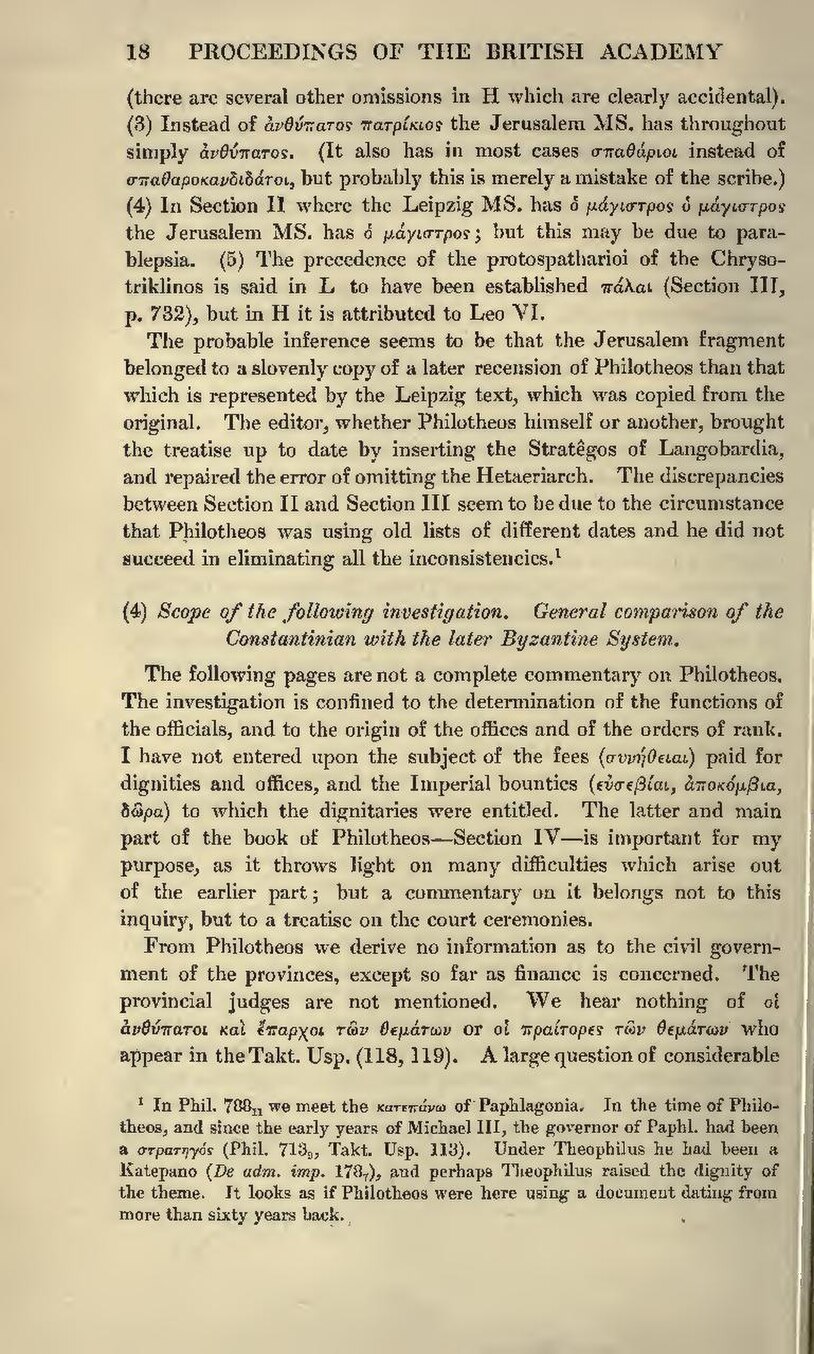(there are several omissions in H which are clearly accidental). (3) Instead of ἀνθύπατος πατρίκιος the Jerusalem MS. has throughout simply ἀνθύπατος. (It also has in most cases σπαθάριοι instead of σπαθαροκανδιδάτοι, but probably this is merely a mistake of the scribe.) (4) In Section II where the Leipzig MS. has ὁ μάγιστρος ὁ μάγιστρος ; the Jerusalem MS. has ὁ μάγιστρος ; but this may be due to parablepsia. (5) The precedence of the protospatharioi of the Chrysotriklinos is said in L to have been established πάλαι (Section III, p. 732), but in H it is attributed to Leo VI.
The probable inference seems to be that the Jerusalem fragment belonged to a slovenly copy of a later recension of Philotheos than that which is represented by the Leipzig text, which was copied from the original. The editor, whether Philotheos himself or another, brought the treatise up to date by inserting the Stratêgos of Langobardia, and repaired the error of omitting the Hetaeriarch. The discrepancies between Section II and Section III seem to be due to the circumstance that Philotheos was using old lists of different dates and he did not succeed in eliminating all the inconsistencies.[1]
(4) Scope of the following investigation. General comparison of the Constantinian with the later Byzantine System.
The following pages are not a complete commentary on Philotheos. The investigation is confined to the determination of the functions of the officials, and to the origin of the offices and of the orders of rank. I have not entered upon the subject of the fees (συνήθειαι) paid for dignities and offices, and the Imperial bounties (εὐσεβίαι, ἀποκόμβια, δῶρα) to which the dignitaries were entitled. The latter and main part of the book of Philotheos—Section IV—is important for my purpose, as it throws light on many difficulties which arise out of the earlier part ; but a commentary on it belongs not to this inquiry, but to a treatise on the court ceremonies.
From Philotheos we derive no information as to the civil government of the provinces, except so far as finance is concerned, ‘The provincial judges are not mentioned. We hear nothing of οἱ ἀνθύπατοι καὶ ἔπαρχοι τῶν θεμάτων who appear in the Takt. Usp. (118, 119). A large question of considerable
- ↑ To Phil. 78811, we meet the κατεπάνω of Paphlagonia. In the time of Philotheos, and since the early years of Michael III, the governor of Paphl. had been a στρατηγός (Phil, 713, Takt. Usp. 113). Under Theophilus he had been a Katepano (De adm. imp. 1787), and perhaps Theophilus raised the dignity of the theme. It looks as if Philotheos were here using a document dating from more than sixty years back.
